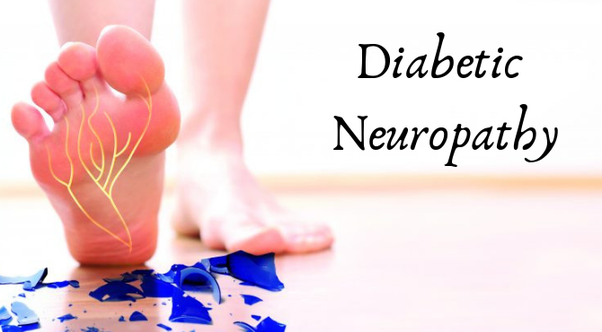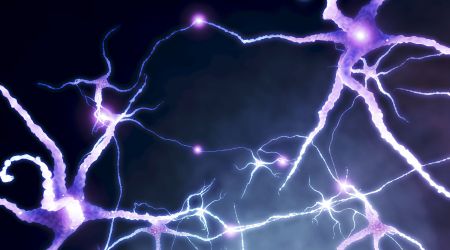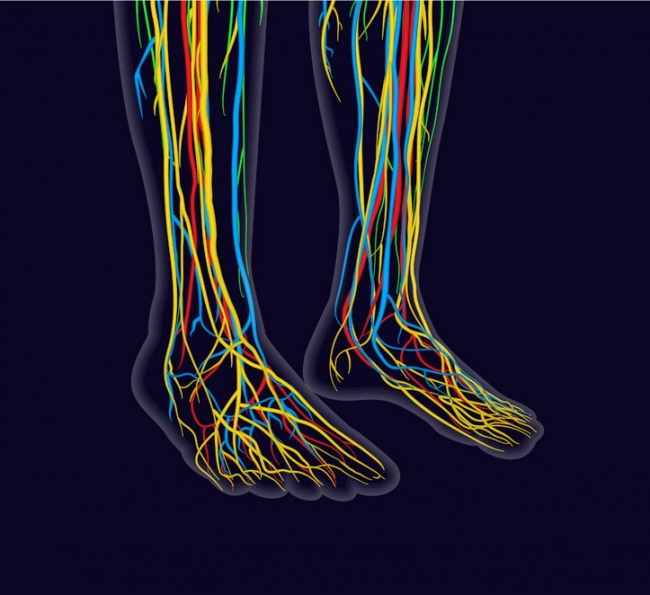Blocking a sensory nerve signal with medication could prevent or even reverse symptoms of peripheral neuropathy, according to new research published in the Journal of Clinical Investigation.
About 20 million Americans suffer from peripheral neuropathy, which often causes a painful stinging or burning sensation in the hands or feet.
“Peripheral neuropathy is a major and largely untreated cause of human suffering,” said lead author Nigel Calcutt, PhD, a professor of pathology at the University of California San Diego School of Medicine. “It has huge associated health care costs.”
In studies on diabetic laboratory rats, Calcutt and his colleagues identified a molecular signaling pathway that, when blocked with the drug pirenzepine, promotes sensory neuron growth and prevents or reverses the nerve damage caused by peripheral neuropathy.
The discovery suggests that pirenzepine and other anti-muscarinic drugs – a class of nerve medication that is already used to treat Parkinson’s disease, motion sickness, irritable bowel syndrome and other conditions – could be used as a new treatment for peripheral neuropathy.
“This is encouraging because the safety profile of anti-muscarinic drugs is well-characterized, with more than 20 years of clinical application for a variety of indications in Europe,” said senior study author Paul Fernyhough, PhD, a professor in the departments of pharmacology and therapeutics and physiology at the University of Manitoba in Canada. “The novel therapeutic application of anti-muscarinic antagonists suggested by our studies could potentially translate relatively rapidly to clinical use.”
.The first symptoms of peripheral neuropathy are usually a tingling or numbing sensation in the toes, feet, and hands caused by small fiber nerve damage. The symptoms progress, spread and become more painful, dramatically affecting quality of life.
Researchers say treating the disease in its early stages is key.
Since small fiber degeneration develops early in the human disease and can be reliably quantified using a variety of minimal or noninvasive techniques that can be applied iteratively, future clinical trials of anti-muscarinic drugs might feasibly focus on reversal of these early indices of neuropathy,” they said.
“Further, as anti-muscarinic drugs were effective in augmenting collateral (nerve) sprouting in our in vitro assay, this new therapeutic approach may be most effective during the early stages of a dying-back neuropathy prior to overt and/or complete fiber loss.”
Nearly 26 million people in the United States have diabetes and about half have some form of neuropathy, according to the American Diabetes Association. Small fiber neuropathy can also be caused by lupus, HIV, Lyme disease, celiac disease or chemotherapy.





